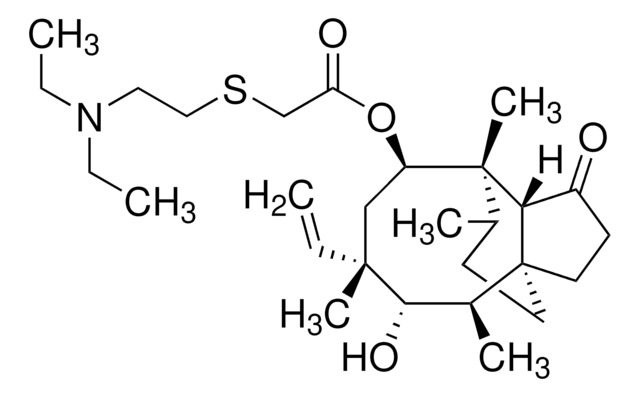About This Item
Recommended Products
grade
analytical standard
Quality Level
product line
VETRANAL®
shelf life
limited shelf life, expiry date on the label
technique(s)
HPLC: suitable
gas chromatography (GC): suitable
application(s)
clinical testing
format
neat
storage temp.
2-8°C
SMILES string
C[C@H]1COc2c3N1C=C(C(O)=O)C(=O)c3cc(F)c2C4(N)CC4
InChI
1S/C16H15FN2O4/c1-7-6-23-14-11(16(18)2-3-16)10(17)4-8-12(14)19(7)5-9(13(8)20)15(21)22/h4-5,7H,2-3,6,18H2,1H3,(H,21,22)/t7-/m0/s1
InChI key
XAGMUUZPGZWTRP-ZETCQYMHSA-N
Looking for similar products? Visit Product Comparison Guide
General description
Application
Recommended products
Legal Information
Signal Word
Warning
Hazard Statements
Precautionary Statements
Hazard Classifications
Acute Tox. 4 Dermal - Acute Tox. 4 Inhalation - Acute Tox. 4 Oral
Storage Class Code
11 - Combustible Solids
WGK
WGK 3
Personal Protective Equipment
Choose from one of the most recent versions:
Already Own This Product?
Find documentation for the products that you have recently purchased in the Document Library.
Our team of scientists has experience in all areas of research including Life Science, Material Science, Chemical Synthesis, Chromatography, Analytical and many others.
Contact Technical Service






